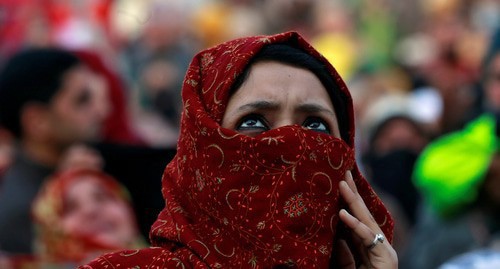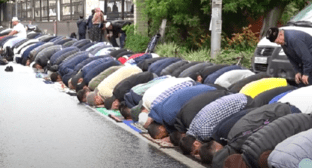
21 August 2020, 23:18
Islamic experts: fatwa against female circumcision addressed to Dagestani residents
The practice of female circumcision, which the Spiritual Administration of Muslims (SAM) of Dagestan opposed, is not related to the Islam concepts, and the Muftiate voiced its position not for religious leaders, but for residents of the republic, suggest Islamic experts interviewed by the "Caucasian Knot".
The "Caucasian Knot" has reported that the SAM of Dagestan released a fatwa (an official explanation of a religious and legal issue, – note of the "Caucasian Knot") against female circumcision. The Dagestani SAM explained its decision to issue a fatwa by the journalists' interest in the problem.
According to a report released by the "Legal Initiative" in 2018, every year, in Dagestan, at least 1240 girls fell victim to genital mutilation procedures. Since then, the practice of mutilation procedures had not stopped, reported on August 14 Saida Sirazhudinova, a co-author of the report, the president of the Centre for Research on Global Issues of the Present and Regional Problems "Caucasus. World. Development".
The practice of female circumcision is not related to Sharia, the "Caucasian Knot" correspondent was told by historian Akhmad Makarov, a member of the editorial board of the encyclopedia "Islam in the Russian Federation". "This is an adat (a local customary practice observed by a Muslim community, – note of the "Caucasian Knot"), and it belongs to Eastern Caucasus. This adat is not and cannot be appointed by an imam," the expert explained.
According to Akhmad Makarov, only imams who obey the SAM of Dagestan will take into account and use the fatwa in their Friday sermons. The expert also expressed his scepticism concerning the likelihood of the adoption of similar fatwas in other regions.
The problem of female circumcision is the most relevant for Dagestan, agrees Makka Albogachieva, Senior Researcher at the Caucasus Ethnography Department at the Museum of Anthropology and Ethnography. "I travel to the Caucasus every year, and I hardly noted [the practice] in other regions," Makka Albogachieva told the "Caucasian Knot" correspondent.
According to the expert, the fatwa is addressed not only to imams, but also to all residents of Dagestan. "Those who issued the fatwa hope that it will attract the attention of all residents of the region," Makka Albogachieva shared her opinion.
This article was originally published on the Russian page of 24/7 Internet agency ‘Caucasian Knot’ on August 21, 2020 at 03:41 pm MSK. To access the full text of the article, click here.
Author: Semyon Charny Source: CK correspondent





Комментирование через Кавказский узел